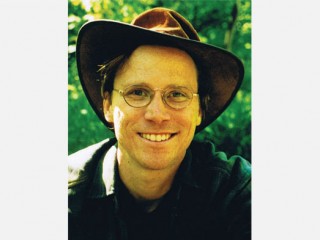
Eric Wolf biography
Date of birth : 1923-02-01
Date of death : 1999-03-06
Birthplace : Vienna, Austria
Nationality : American
Category : Science and Technology
Last modified : 2010-08-26
Credited as : Anthropologist, advocacy of Marxist perspectives,
16 votes so far
Life
Eric Wolf was born in Vienna, Austria, but to avoid persecution, his Jewish family moved first to England and then, in 1940, to the United States, where they lived in New York City. Wolf initially enrolled in Queens College, but had to halt his studies due to American involvement in World War II.
He married Kathleen Bakeman, a social worker, on September 24, 1943. Subsequently, he joined the army and went to fight overseas. It is probably there that Wolf developed a deep interest in other cultures. After the war ended, like many returning soldiers, he took advantage of the newly minted GI Bill of Rights to obtain his college education. Wolf began studying anthropology at Columbia University. He earned his bachelor’s degree in sociology and anthropology in 1946, and his Ph.D. in 1951. His professors were Ruth Benedict and Julian Steward.
Columbia had been the home of Franz Boas for many years, and was the central location for the spread of anthropology in America. By the time Wolf arrived, Boas had died and his anthropological style, which was suspicious of generalization and preferred detailed studies of particular subjects, was also out of fashion. The new chair of the anthropology department was Julian Steward, a student of Robert Lowie and Alfred L. Kroeber. Steward was interested in creating a scientific anthropology that explained how societies evolved and adapted to their physical environment.
Wolf was part of the clique of students that formed around Steward. The Marxist orientation of these students worked well with Steward's less politicized evolutionism. Many anthropologists prominent in the 1980s, such as Marvin Harris, Sidney Mintz, Morton Fried, Stanley Diamond, and Robert F. Murphy, were among this group.
Wolf joined Steward in his field study in Puerto Rico in 1949, where he first became interested in peasants, power struggle, and political economy. He visited Mexico three times between 1951 and 1956, studying the formation of Mexican national identity. He went to Europe in 1960 for fieldwork in the Italian Alps.
Over the years, Wolf held many academic appointments. He taught at the University of Illinois from 1952 until 1955, at the University of Virginia from 1955 until 1958, at Yale from 1958 till 1959, at the University of Chicago from 1959 till 1960, at the University of Michigan from 1961 until 1971, and at the City University of New York (CUNY) for the rest of his career.
In 1972, he divorced his wife and married Sydel Silverman, an anthropologist. Wolf struggled with cancer later in life, and died in 1999, in Irvington, New York.
Work
The significance of Wolf's work in anthropology lies in the fact that he focused on issues of power, politics, and colonialism during the 1970s and 1980s when these topics were moving to the center of disciplinary concerns. His ideas can be characterized as Marxist in nature. He studied the power struggles of peasants against capitalist elite, and the influence of capitalism on the cultural identity of local communities. These were the lenses through which Wolf viewed anthropology.
Based on his experience with the life of peasants, Wolf was against the idea of society as a bounded entity. He saw that local communities are not isolated on the local level, but that they are a functional part of a larger society. Therefore, to understand any local community, one has to observe it within the complex system of political, economic, cultural, and other relationships. In addition, he argued that one has to approach society from a historical perspective, seeing it in a historical context within the larger human community.
Wolf recognized that no society is isolated in time and space, but each one interacts with other societies across boundaries and across time. Thus, in his book, Europe and the People Without History, Wolf wrote about different tribes, bands, and small states that were developing within the larger system of capitalist expansion around the globe. He discussed non-European societies being caught up in global processes like the fur trade and slave trades, influences of colonialism on such communities. Thus, they were not "frozen in time" or "isolated," but had always been deeply implicated in world history.
Cultures are not integral wholes carried by social isolates. We must distinguish between reality culture and ideology-making, and recognize that the creation or dismantling of cultures always goes on within extensive social fields, structured by the dominant modes of production. It is suggested that ideology-making derives from the prevalent mode of production and is entailed in its operations (Wolf 1984: 393).
Towards the end of his life, Wolf warned of the "intellectual deforestation" that occurred when anthropology focused on esoteric theories instead of remaining grounded in the realities of fieldwork and real life.
Legacy
Wolf’s contribution to anthropological science involves two levels. The first level is that of time. He saw society in a historical context, not static, but a dynamic entity, always in the process of changing. That change is caused not only by the internal dynamics within the society, but also due to the interactions of the society beyond its boundaries.
This interaction constitutes the second level. Wolf saw society within the larger picture of global processes and interactions, where all societies are interconnected on the world level. In Wolf’s model, reflecting his Marxist leanings, the common denominator that tied all societies was capitalism.
While his view that the global context is important in understanding human society has merit, limiting these processes and interactions to the economic sphere also limited his theory. Essential human relationships are internal, religious, or spiritual in nature, and external aspects, including economic and other material interactions, are secondary. Nevertheless, Wolf's work, grounded in data from fieldwork, provided an impetus to research on how societies evolved.
















